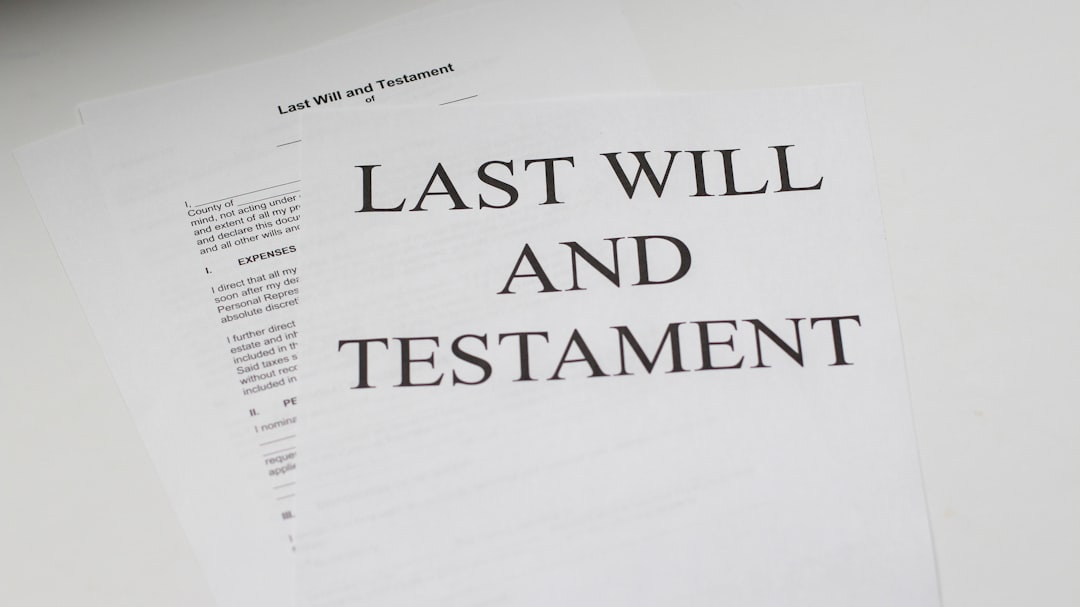
PARENTS & HOMEOWNERS: MY 7-STEP ESTATE PLANNING PROCESS WILL PROTECT YOUR HEIRS
From Creditors, Predators & Bad Choices, And Will Help You Become a (Bigger) Hero to Your Family!



Maximizing Your Legacy: Navigating Trusts and Wills for Effective Estate Planning
Estate Planning Essentials
Estate planning is a critical task that everyone should consider, regardless of their wealth or family situation. It involves making arrangements to secure the future of your assets and loved ones, ensuring that your wishes are carried out after your passing. This process includes the creation of legal documents like wills and trusts, which serve as guidelines for the distribution of your assets. For instance, consider a family where the parents want to ensure their minor children are taken care of financially in the event of their untimely demise. A well-crafted estate plan would provide a clear directive on how their assets should be distributed to safeguard their children’s future.
In the context of personalized estate planning services, the Law Office of Eric Ridley stands out with its commitment to providing transparent and honest legal advice. Eric Ridley, a skilled attorney based in Ventura and Los Angeles, California, offers a range of services including assistance with probate, creation of wills, establishing revocable living trusts, powers of attorney, and asset protection. With a focus on client-centered solutions, the firm ensures that each estate plan is tailored to meet the unique needs and goals of the client, thereby offering peace of mind and assurance of a secure future for their loved ones.
Exploring Trusts and Wills
Trusts and wills are two key components of estate planning. They serve specific purposes in managing assets and ensuring that these are distributed according to your wishes. A will, for instance, is a legal document that provides instructions for the distribution of your property after your death. It comes into effect only after you pass away and undergoes a process known as probate, during which the court validates the will and oversees the distribution of assets. Imagine an individual with a collection of vintage cars wants to bequeath them to various family members. A well-drafted will could specify who gets which car, ensuring the individual’s wishes are followed.
A trust, on the other hand, is a legal arrangement where one party (the trustee) holds property for the benefit of another party (the beneficiary). Trusts can be set up during an individual’s lifetime or after death, as specified in a will. Unlike wills, trusts come into effect immediately after they are funded, allowing for potentially faster distribution of assets. For instance, in the case of a wealthy individual who wants to provide for their children but is concerned about them receiving too much money too soon, a trust could be set up to distribute the assets at a certain pace, providing more control over how the assets are used.
Understanding the mechanisms of trusts and wills is critical to successful estate planning. This involves knowing when each tool is most effective and how they can be used in conjunction to ensure a comprehensive and effective estate plan.
 Key Differences between Trusts and Wills
Key Differences between Trusts and Wills
When it comes to understanding how trusts and wills function, it’s important to highlight their fundamental differences, particularly in relation to their mechanisms for property distribution and management. A will is a legal document that provides instructions on how an individual’s assets should be distributed after their death. This could include specific bequests, like leaving a cherished piece of jewelry to a beloved niece, or broad directives, like leaving all assets to a surviving spouse.
On the other hand, a trust operates differently. It becomes effective immediately upon signing and funding, allowing for the seamless transfer of ownership and management of assets to a designated trustee. This can be particularly helpful in scenarios where an individual wants to ensure their assets are managed in a specific way after their passing. For example, a trust could be used to ensure a family home stays within the family for generations to come.
Understanding these key differences is crucial to making informed decisions about estate planning. This knowledge allows individuals to select the most appropriate tools for their particular circumstances, ensuring their assets are managed and distributed in accordance with their wishes.
Advantages and Disadvantages of Trusts and Wills
Wills and trusts each have their own set of advantages and disadvantages, which can impact individuals differently based on their unique circumstances. A will, for example, is a simple and often more affordable option for many individuals. It provides a straightforward way to outline how assets should be distributed after death. For instance, a young couple may want to ensure that their assets are evenly split between their two children in the event of their untimely passing. A will could ensure this happens, offering a clear and uncomplicated solution.
Trusts, however, offer more control, privacy, and potential tax benefits. A trust can help individuals avoid the probate process, which can be lengthy and costly. This is particularly beneficial for those with substantial assets or complex distribution plans. For example, a wealthy individual may want to set up a trust to provide for their special needs child in a way that doesn’t interfere with their eligibility for government benefits. A special needs trust could accomplish this, demonstrating the flexibility and control that trusts can offer.
However, it’s important to note that setting up a trust can be more complex and costly compared to creating a will. This is due to the legal and administrative resources required to establish and manage a trust. Therefore, it’s essential to consider these factors when deciding between a will and a trust.
Asset Management with Trusts and Wills
Trusts and wills can both be effective tools for managing assets, but they serve different roles and offer distinct advantages. Trusts, for example, are particularly useful in managing assets for minors or individuals with special needs. This is because trusts allow a high level of control over how and when assets are distributed. For instance, parents of a minor child may want to set up a trust that only allows the child to access their inheritance once they reach a certain age or achieve a specific milestone, such as graduating from college.
On the other hand, wills provide a clear, straightforward method for outlining how assets should be distributed following an individual’s death. This can be particularly useful for those with simple estates or clear-cut distribution plans. For example, an elderly individual may want to divide their estate equally among their three children. A will can easily accomplish this, providing a simple and direct solution.
Whether you choose to use a will, a trust, or a combination of both often depends on your individual circumstances and goals. This is why it’s essential to seek professional guidance when planning your estate. The Law Office of Eric Ridley specializes in setting up trusts and wills to manage assets according to the unique needs of each client, ensuring a personalized and effective approach to estate planning.
Types and Considerations of Trusts
There are several types of trusts available, each serving unique purposes and offering distinct advantages. Living trusts, for example, are established during the grantor’s lifetime and can be either revocable or irrevocable. A revocable trust allows the grantor to maintain control of the assets during their lifetime and make changes to the trust as needed. Conversely, an irrevocable trust transfers control of the assets to the trustee, offering potential tax advantages and asset protection.
Another type of trust is the testamentary trust, which is created through a will and only takes effect after the grantor’s death. This type of trust is often used to provide for minor children or other dependents, ensuring their financial needs are met even after the grantor’s passing.
When establishing a trust, it’s important to consider factors such as the cost, the desired level of control over the trust assets, and the individual’s preferences for managing their assets during their lifetime. For example, individuals who prioritize the ability to modify or revoke the trust may be more suited to a revocable trust. On the other hand, those who prioritize asset protection and tax benefits may prefer an irrevocable trust. Understanding these considerations can help individuals make well-informed decisions about establishing a trust.
Types and Considerations of Wills
Wills are an essential estate planning tool, offering a straightforward method for outlining how an individual’s assets should be distributed after their death. There are several types of wills to consider based on your unique circumstances and needs. Simple wills, for instance, are ideal for individuals with modest assets and straightforward distribution plans. They outline who gets what and can also designate a guardian for any minor children.
However, more complex situations may require a different type of will. For example, testamentary trust wills allow for the creation of a trust upon the testator’s death. This can be particularly useful for those who wish to provide for minor children or other dependents.
When creating a will, it’s important to gather all relevant information about your assets and select a reliable executor. The executor is responsible for carrying out the instructions in your will, so it’s crucial to choose someone you trust. The Law Office of Eric Ridley can provide guidance and support in these considerations, assisting you in creating a will that ensures your assets are distributed according to your wishes.
 Comparative Analysis of Trusts and Wills
Comparative Analysis of Trusts and Wills
Trusts and wills each offer unique advantages and can often complement each other in a comprehensive estate plan. Wills provide a clear outline of how you wish to distribute your assets after your death. For example, a single mother with two young children might create a will to ensure her assets are divided equally between them when they reach adulthood.
Trusts, on the other hand, provide a higher degree of control over asset management and distribution, both during your lifetime and after your death. For example, a successful business owner might establish a trust to gradually transfer ownership of the business to their children, ensuring a smooth transition and continuity of operations.
The choice between a trust and a will depends largely on your individual circumstances and preferences. For some, the simplicity and affordability of a will may be most appealing. For others, the control and flexibility of a trust may be more suitable. In many cases, a combination of both a will and a trust can provide the most comprehensive and effective estate planning solution.
 Estate Planning for LGBTQ+ Couples
Estate Planning for LGBTQ+ Couples
Estate planning holds particular importance for LGBTQ+ couples, who may face unique legal and financial considerations. Having a will or trust in place can provide crucial protections for same-sex couples, especially in jurisdictions where legal protections may be limited or non-existent.
For example, a same-sex couple might create a will or trust to ensure their assets are distributed according to their wishes, rather than defaulting to potentially unfavorable intestacy laws. This can be particularly important in situations where the couple’s relationship may not be legally recognized.
